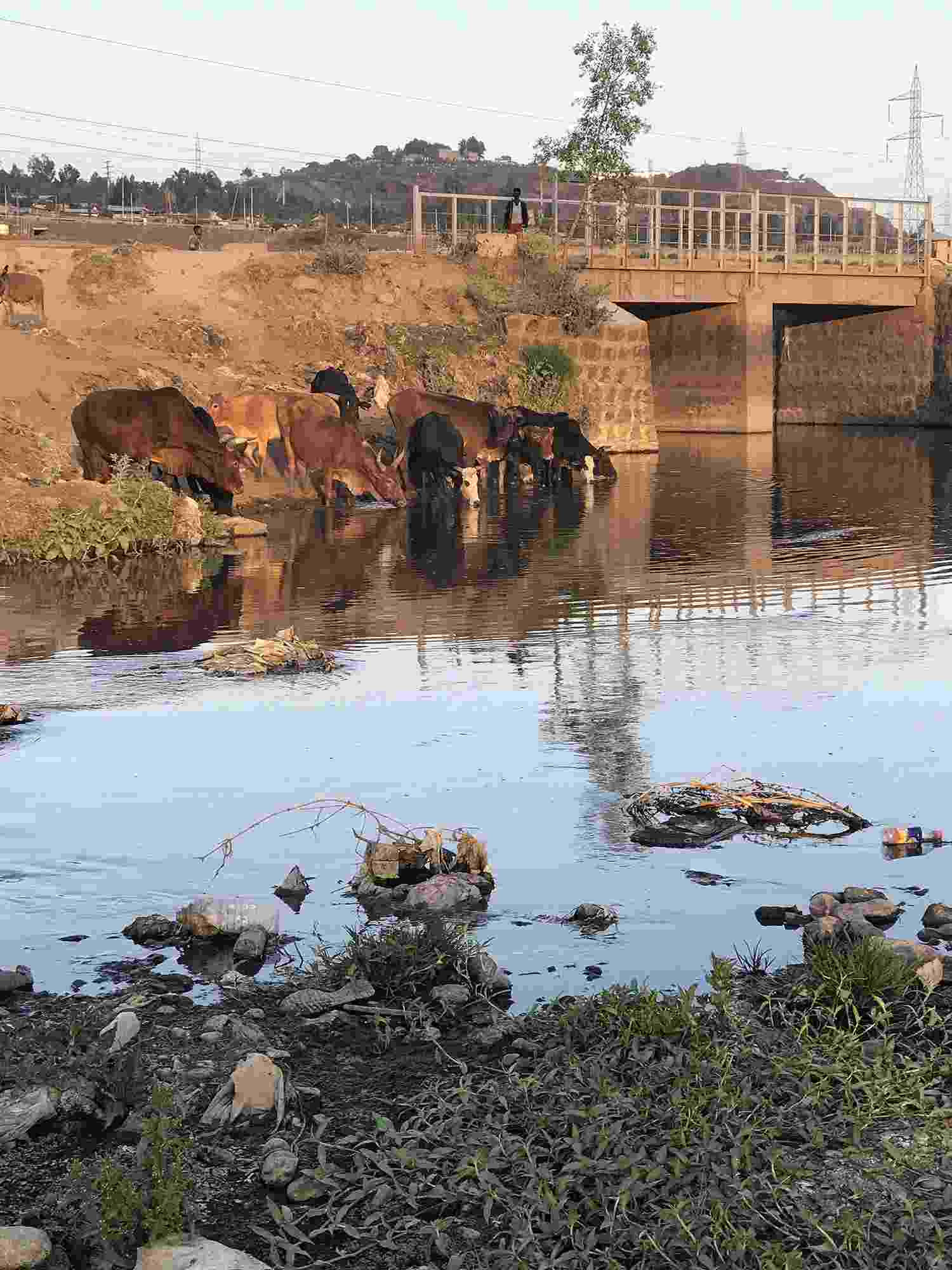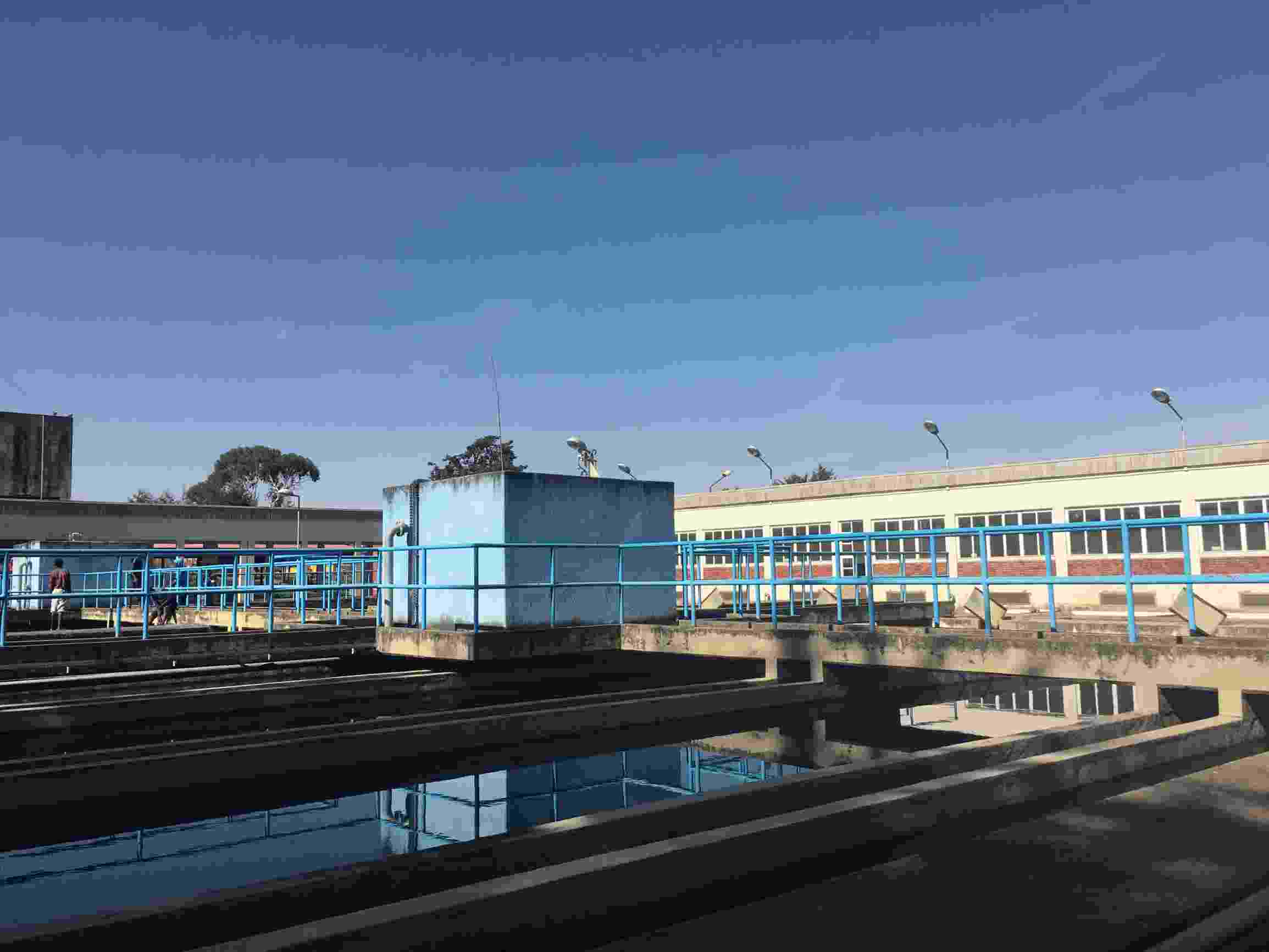Collaboratory update October 2021 | Ethiopia
An update from our colleagues in Ethiopia
17 October 2021


Livestock drinking from the Little Akaki River
After disruption caused earlier in the year by both the pandemic and internal conflict related to the region’s politics, the Ethiopia Collaboratory have now been able to return to field work. In the Akaki basin, members of the IWMI team have completed their water values household survey, and colleagues researching governance and policy have interviewed key informants from both government agencies and local people living around the Akaki River, as part of an ongoing study examining water security and governance issues.
As part of the Collaboratory’s ongoing relationship building with stakeholders, in August the WLRC team held a stakeholder workshop in Bahir Dar, with various local institutions. Coming together with 23 participants, the overall objective of the workshop was to discuss the current status, gaps, and opportunities of hydrological monitoring networks in the Abbay basin, for the purposes of improving hydrological services and working towards achieving water security in the region.
The team also recently delivered presentations on: ensuring water security, to participants from Oromia towns water supply services, and the Addis Ababa Water and Sewerage Authority (AAWSA) Training Centre; and on the current status of the Central Rift Valley (CRV) to regional, zonal, and woreda experts. A four-day training course was also delivered to staff from the River Basin Development Authority and three river basin offices, focusing on wetlands in Ethiopia.
Additionally, colleagues at IWMI held a refresher training event onsite at AAWSA for citizen scientists. The focus of the training was to review the quality of the rainfall, streamflow, and water quality data citizen scientists had collected so far, with additional content on measurement techniques and procedures, how to reduce common mistakes in data collection, and the potential use of the collected data. This training is expected to increase awareness and understanding for citizen scientists and help them collect quality data.


Legedadi Reservoir
As part of the community-based flood risk management study, IWMI colleagues supported citizen scientists from Akaki flood prone areas to visit the Legedadi Reservoir, to overcome trust issues that arose between them and the reservoir operator. The mistrust occurred after local communities were impacted by extreme floods in July that were more intense than other flood incidents they had experienced, leading to the belief that the flood had been caused by a release of water from the reservoir. Through the visit, the citizen scientists were able to witness the water levels at the reservoir and gain an understanding about how and when water is released, helping dispel the distrust.
In August, WLRC team members were interviewed on national Ethiopian TV (in Amharic) about the Grand Ethiopian Renaissance Dam (GERD). They covered the benefits of the GERD beyond Ethiopia, evidence-based insights, and scientific mechanisms to ensure its sustainability.



